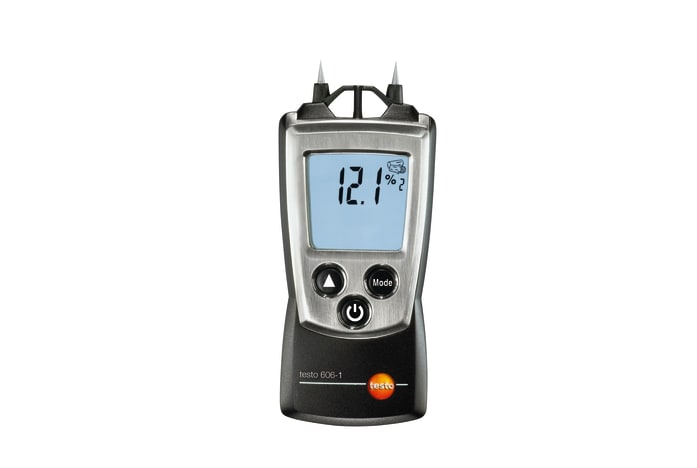Recognizing the Different Types of Moisture Meters and Their Applications
Recognizing the Different Types of Moisture Meters and Their Applications
Blog Article
The Ultimate Guide to Moisture Meters: A Comprehensive Overview and Just How They Can Conserve You Cash
In the realm of structure maintenance, building, and various markets, the importance of properly gauging moisture levels can not be overstated. Moisture meters work as essential tools in spotting and keeping an eye on moisture content in products, helping in avoiding pricey damages and guaranteeing the quality of items. Recognizing the subtleties of different sorts of moisture meters, their applications, and the potential cost-saving advantages they provide can be a game-changer for specialists and companies alike. Discovering just how these devices can not only simplify processes however also add to monetary cost savings is a trip worth starting.
Kinds Of Moisture Meters
One common type is the pin-type wetness meter, which determines the electrical resistance in between two pins inserted right into a product. Pinless dampness meters, on the other hand, usage electromagnetic sensing unit plates to scan a larger area without triggering damages to the material's surface.

Infrared moisture meters determine the thermal homes of a product to identify its dampness material non-invasively, making them helpful for applications where pin or pinless meters may not be appropriate. Recognizing the different kinds of moisture meters offered can aid industries pick the most ideal device for their specific wetness dimension demands.

Advantages of Utilizing Wetness Meters
Moisture meters offer important benefits in accurately examining and checking wetness degrees in varied materials and environments (Moisture Meter). One of the key benefits of utilizing wetness meters is the prevention of potential damages caused by excess moisture. By spotting and addressing high moisture degrees beforehand, wetness meters aid to prevent mold and mildew development, rot, and architectural damages in buildings, saving both money and time on repair services. Additionally, dampness meters aid in ensuring the top quality of materials throughout building and construction or manufacturing procedures. By accurately gauging dampness material, these tools assist keep the honesty of timber, drywall, concrete, and various other products, reducing the danger of flaws or failings.
Furthermore, utilizing wetness meters can result in increased power efficiency. By recognizing areas with high moisture degrees, such as leaks or inadequate insulation, changes can be made to enhance power conservation and reduce utility costs. In agricultural settings, moisture meters play a vital function in enhancing crop returns by enabling farmers to keep track of dirt moisture levels and make notified irrigation decisions. Generally, the benefits of utilizing wetness meters cover throughout numerous sectors, providing cost-effective options and promoting better quality control practices.
Exactly How to Pick the Right Wetness Meter
When picking a dampness meter, it's necessary to ensure that the meter is appropriate for the specific product you will be screening. Various products have varying electrical residential or commercial properties that can influence wetness readings, so picking a meter made for your material is important for exact outcomes. By carefully evaluating these factors, you can choose a dampness meter that fulfills your demands and offers exact moisture measurements for your projects.
Proper Techniques for Wetness Meter Usage

Expense Financial Savings Via Moisture Meter Applications
Exactly how can the calculated find this utilization of moisture meters lead to substantial cost financial savings throughout various industries? In the agriculture industry, moisture meters help in identifying the optimal time for harvesting crops, protecting against excess or over-drying dampness that can influence the last item's high quality.
Similarly, in construction, dampness meters aid stop expensive problems by spotting moisture levels in structure products, such as wood or concrete, which can cause architectural issues otherwise attended to immediately. By recognizing trouble areas early, specialists can take restorative measures to stay clear of comprehensive repair services or substitutes, eventually conserving money and time.
In addition, in the food processing sector, dampness meters are necessary for keeping track of product high quality and ensuring compliance with safety and security laws. By precisely gauging dampness web content in foodstuff, suppliers can avoid wasting, preserve freshness, and lower waste, resulting in substantial expense financial savings. Overall, the calculated application of dampness meters is an important financial investment that can lead to substantial cost decreases and boosted effectiveness across various industries.
Verdict
In final thought, wetness meters are beneficial devices for measuring and finding wetness levels in different materials. By utilizing the ideal dampness meter and following proper techniques, customers can effectively prevent pricey problems brought on by excess wetness. Buying a high quality wetness meter can result in significant expense financial savings in the lengthy run by recognizing potential problems at an early stage and allowing punctual remediation. Eventually, wetness meters are necessary instruments for keeping the integrity and longevity of structures and materials.
Moisture meters serve as vital tools in finding and keeping track of moisture material in products, helping in avoiding costly damages and making sure the quality of products. Infrared dampness meters determine the thermal properties of a material to identify its dampness web content non-invasively, making them helpful for applications where pin or pinless meters might not be suitable.Dampness meters provide indispensable advantages in properly examining and checking wetness degrees in diverse materials and environments. In agricultural use this link setups, wetness meters play an important function in maximizing crop yields by making it possible for farmers to monitor soil moisture degrees and make notified irrigation choices.In verdict, dampness meters are important tools for spotting and determining wetness degrees in various materials.
Report this page